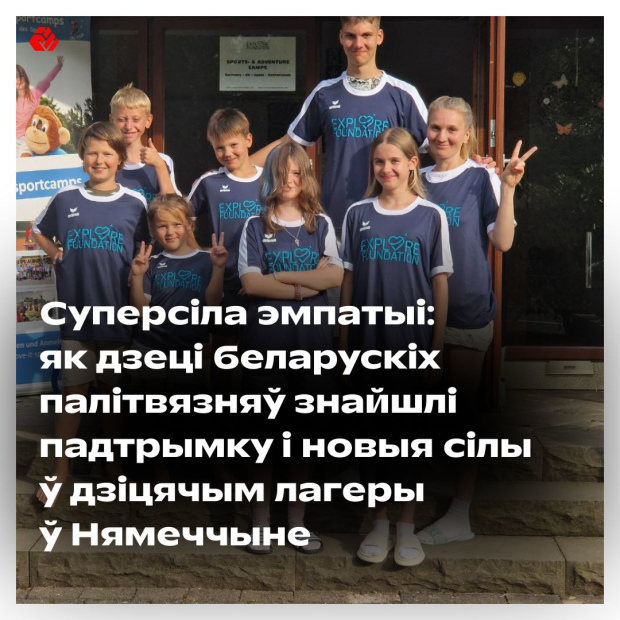The "Emergency Humanitarian Aid Service," with support from partners, organized a summer trip to Germany for children of political prisoners. This was a new project and a new experience for the service. The group was small, consisting of nine children and one accompanying adult. It was a sports camp with various activities, including games, a water park, barbecues, and more. We are speaking with Olga Ritus, a former political prisoner who accompanied the group.
The children traveled to Germany for seven days, from July 21 to July 27. The participants were children whose parents are currently in prison, children whose parents were recently released, and a child of an activist who has contributed significantly to helping political prisoners.
— These children have experienced and continue to experience psychological trauma. Essentially, they have been uprooted and isolated from their support systems—close people (parents, friends, cousins), favorite places—everything they miss in some way or another. This, of course, is a psychological trauma.
Such children often seek closeness with adults; for example, they want to hug. One boy was afraid to sleep, and another was troubled by the absence of his mother and father. Once, on the bus, I overheard older children discussing how their parents had been in prison. In that conversation, there was horror, pain, acceptance of the situation as part of life, and also non-acceptance, because prison is shameful. Even if you go abroad, you can't tell everyone about this experience.
When these kids are in an environment with others who have gone through similar experiences, it's like meeting themselves and supporting each other. I am also a former political prisoner and understand this well. Of course, there were conflicts and teasing (which is inevitable in childhood, and there are no illusions here). But our kids treated each other with understanding and empathy. It was as if the pain of being without their parents gave them a superpower—empathy. Their traumatic experience really united them, and even the conflicts were constructive. It was very pleasant and surprising to see how empathetic our children are.

Olga explains that it was also important for the children to experience interacting with a different type of people compared to Belarusians. Germans are very structured and respect rules.
"The children watched with wide eyes. For example, at first, we had some misunderstandings with the German hosts because they have a system: everyone sweeps up after themselves, goes to the hall and shower in an orderly manner. Every morning, they explain what games will be played, how the group will be divided, and the Germans stick to the schedule and rules. Our kids started off with 'I don't want to, I won't do that,' but by the end of the camp, they had adapted, accepted this structured order, and integrated into the environment."

This sentiment is echoed in the feedback from one of the mothers, former political prisoner Olga Pavlova:
"1. The schedule was very much appreciated; my child proudly reported losing at least a kilogram and now knows many options for morning exercises;
2. Everything was great, especially the royal night, when they put toothpaste on those who fell asleep;
3. The food was also a plus; my child now eats buckwheat (which they previously didn't like and left unfinished on their plate)."

But most importantly, without which this text about the children's camp wouldn't be complete, is great gratitude, says Olga Ritus. Firstly, to the people who were with us 24/7. Those who invested their time (because the logistics are quite challenging) and their resources (as the trip is quite expensive). Thank you!
Right now, we are preparing for the integration camp — join!


 Continue
Continue
